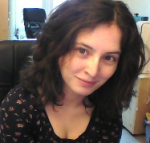Quote
Years ago, when I first began my study of writing, I was both fortunate and cursed to land, right off the bat, a spectacularly good workshop teacher for fiction. My initiation into the craft of writing was through a teacher and mentor who knew precisely what he was doing, and by that I mean, he was conscious of everything he wrote. That was the fortunate part, as he awakened in me the same appreciation of the power of storytelling, and all that was possible provided you'd given serious thought to the effect your words would have, and could have, to a reader. But, alas, it was also a curse. I hesitate to say this, since it is bound to be misconstrued as arrogant (when the truth is, it's more desperate and frustrated than arrogant). You see, what made it a curse was that, thanks to that first teacher, I proceeded on the assumption that all writers knew precisely what they were doing: with every word, every sentence, every paragraph and every story.
Well, that was long ago, and a lot of muddy water has passed under the bridge since then. I have been privileged to find myself in the company of countless published authors: well-regarded, bestselling, highly popular authors. In each instance, it was indeed a privilege, and to this day I often feel something of an imposter in their midst. That said, I have also been witness, every now and then, to another side of that whole persona of 'popular, highly-regarded' authordom, which for lack of a better phrase, I will call the Blank Wall.
Before I explain that, I should point out that I am well aware that some writers feel that there is a value in maintaining a certain mystique when it comes to the writing process, as if to explain too much will somehow degrade the wonder (and, perchance, tarnish that aura of genius we all like to maintain before our fans, hah hah). But that always struck me as a rather narrow perch, and a dubious one at that. There is very little that is worthy of mystery to telling a story, and very little of the day-in day-out grind of being a fiction writer invites elevation to superhuman status, and besides, one of the most extraordinary wonders of writing lies precisely in what is possible, and rather than hiding one's cards (as if we published authors possess some secret code of success, jealously guarding our muse-given talent), I for one have always delighted in sharing the bones, meat and skin of narrative, particularly to aspiring writers and anyone else who might be interested.
Back to the Blank Wall. I ran face-first into that wall rather early on, in the company of that highbrow institution of exclusivity known as CanLit (an amorphous Canadian entity of 'serious' literature as promulgated primarily by the Canada Council, writing departments at universities, the Globe and Mail, provincial granting agencies, and CBC Radio). In effect, that mystique and aura was a facade presented not only to the public, but also, strangely enough, quickly and almost instinctively raised up between writers, with some underlying notion of competition feeding it, one presumes. No one seemed open to discussions on the bones, muscle and skin of writing. Granted, I was perhaps hopelessly clumsy in seeking such conversations in the midst of public venues of mutual congratulation and the maintenance of personae, but even my tentative suggestions inviting such dialogue at some later date was met again and again with that Blank Wall.
Granted, it may just be that I'm odious or something, and that each author intellectually ran for the hills at the mere suggestion of engaging me in a conversation. But, oddly enough, odious only to authors, as the rest of my social life seems healthy enough.
Over the years I have taken to attending the International Conference on the Fantastic in the Arts, a scholarly conference in which authors and writers of the genre are invited to sit in on papers presented on their work; and to, on occasion, be part of panels of authors/creators taking questions from the scholars. Being part of those panels can be both exhilarating and profoundly frustrating, as every now and then I sat beside fellow authors intent on maintaining that mystique, that high, blank, impenetrable wall. Some go so far as to respond to every question by holding up their latest book and pointing out that it's available in the book-room. Now, this may come across as a bit cruel (and who knows how many enemies I'm making here among my compatriots), but it strikes me that, of all venues and of all potential audiences, isn't the ICFA one inviting something more than a sales-pitch? We sit at our long table facing a room full of academics and scholars, and spend the hour obscuring the glass between us and them, presumably to maintain that aura of distinction. Of course, I may be even more uncharitable in this, knowing as I do that many authors are shy, often awkward, and besides, it is simpler to fall back on the cliches of 'why we write' ('I write only for myself! But thanks for reading me!'), than it is to strip things back to expose the inner workings.
But, for all that my comments here invite excoriation, another potentially more egregious thought occurs to me, and it goes back to the blessing and the curse of my first workshop teacher, and it's this: maybe many authors don't want to talk about the gristle of writing* not because they're interested in maintaining a mystique, but because they don't think about those things, or, at best, they can't articulate their reasons behind writing what they write.
*[What do I mean by 'gristle,' 'meat and bones,' etc? Well, imagine you are a published author, and you are asked 'Why did you craft that sentence the way you did? What effect were you looking for in that sequence of events? Why did you carry those particular assumptions from our world into the one you invented for your stories? Ah, but that last question ... a hint to where I am headed with this lengthy discourse here, perhaps?]
Before I continue digging this hole of mine, allow me to say that I have been fortunate over the years to find fellow writers more than eager to engage in discussions of the kind I'm advocating here. In each circumstance, I am privileged to discover writers who know precisely what they're up to, and even more wonderful, they're prepared to talk about it!
They may not know it, but they are my lifeline, and I'll not embarrass them by naming names here -- you know who you are and what you mean to me, since when it comes to that, I'm anything but coy. Also, not all of them are writers: some are scholars who take an interest in what lies behind a narrative or an invented world. Others would call themselves, quite simply and humbly, fans. My lifeline, everyone of you.
But let's get back to what's driving me crazy, shall we? It's probably time to explain what has inspired me to write this essay. Well, I've been reading certain blogs and exchanges, here in Goodreads and elsewhere, that raise issues directly relating to authorial intent; and some authors are facing and responding to a most cogent series of questions from critics/fans/readers. These questions highlight (not always in a complimentary fashion) some of the possible assumptions carried over from our world into an invented one.
As questions, most worthwhile indeed. They need to be asked, and no work available to the public can make any claim to immunity against them, just as no author can contemptuously dismiss them (regardless of whether the questions arise from someone who has read their work or not -- the nature of the question itself remains legitimate. It is its relevance that bears thinking about, not on specific grounds, but on general ones, as I will explain shortly).
Often, the discussion that follows, whether involving the author or just fans and advocates and detractors of the argument in question, can quickly bog down into semantic disputes and personal attacks intended to undermine the authority behind any statement being made. This kind of divisiveness may be inevitable, as unfortunate as it is, as the original question gets left behind.
Unlike times past, this modern age makes a commodity of both an artist's works and the artist in question; whereas pre-internet authors could feel open to both advancing or rejecting the cult of the persona. These days, there is a pressure on writers to present to the world more than just their published works, but also their own personae. This has the effect of blurring the distinction between the two, particularly in the eyes of fans (and be assured, there is a profound distinction there, though sometimes neither as profound nor as distinct as one would hope: specifically, when an author writes fiction to advance his or her politics, agenda, world-view and a host of other prejudices, in a manner that reveals their contempt for contrary opinions).
In short, we're in an age where author and the work are both fair game, both open to direct challenge by critics and readers. This is the case of playing with fire and getting occasionally burned.
I am no longer convinced that every published author has given full consideration to the host of assumptions they carry into their created world. Well. There. I said it. I will not get into specific examples here, though it wouldn't take long to assemble a fair list of 'you-had-no-idea-what-you-were-really-saying-here-did-you?' films, novels, and the like. That is, I can only assume they didn't know what they were saying, unless I choose to believe that certain creators of mass media out there have no compunction about encouraging terrorism, perpetuating bigotry, misogyny, rape and hate crimes; and are equally happy advocating revenge as the primary recourse to justice.
So, what has all this to do with the Fantasy genre? Plenty, because it's a genre that invites you (as a writer), even demands you, to invent something new, something other. But in that process of invention (of, say, an entire other world), there is the risk that certain assumptions or behaviors or attitudes from this world can slip in, unquestioned, unchallenged, unexplored. And when that happens, why, it's fair game for anyone -- anyone -- to throw down the gauntlet in challenge. And when it becomes evident, in an author's direct response, that certain elements were not thought-through, not thought-out, that author then faces the choice of mea culpa or launching into a full defense of their position, which in turn further blurs the distinction between author and the author's work in question. This is messy, but I find myself lacking sympathy: we are, after all, in an age of communication that expects the creators be present, engaged, and prepared to stand behind their words. It's not all fun and games and ego-massaging, after all. There's a price to pay for notoriety.
If, into this invented fantasy world, certain assumptions about gender roles, skin colour, sexual preference, etc, are carried ad hoc from our world, then it is incumbent that they be challenged. Why? Because it matters. Because, every time shit like that is carried over, an underlying assumption is made: that such assumptions adhere to some Natural Law, wherein arguments in defense of such choices devolve into falsehood ('history shows it was always that way' [no, it doesn't], and 'in a barbaric world a patriarchy is given' [no, it isn't], or, 'in a post-apocalyptic world where remnants of hi-tech is akin to magic, men will still rule and dominate every social hierarchy' [say what? That doesn't even make sense!]). The Natural Law argument is a fallacy; more to the point, the Fantasy genre is the perfect venue in which to utterly dismantle those assumptions, to offer alternative realities and thereby challenge the so-called givens of the human condition.
[End Part 1, feel free to discuss]
Steven Erikson
EDIT: Let me know if the type size is too large/small for those on normal monitors. I'm on a high DPI screen, so this looks right to me, but it may not look good on normal DPI screens.
This post has been edited by Whisperzzzzzzz: 12 February 2015 - 06:07 PM

 Help
Help


















